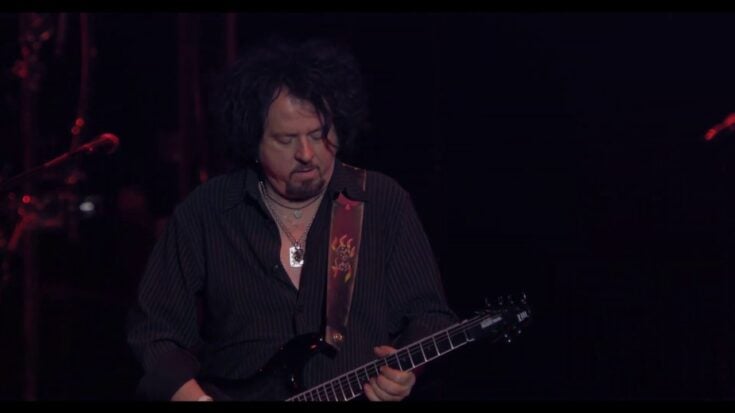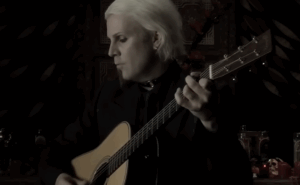Steve Lukather Fires Back at Critics Who Claim Toto Isn’t the Real Band Anymore

via YouTube / Luc Finella Vidéo-Resistance Studio
Steve Lukather has never shied away from addressing the criticism that follows Toto’s current incarnation. With decades of lineup changes behind them and the loss of several beloved members, the conversation about what constitutes the “real” Toto has lingered for years. In a recent appearance on Rockonteurs, Lukather finally confronted the subject head-on.
He acknowledged the simple truth many fans already know: the band today is not the same group that stormed the charts in the late ’70s and ’80s. But instead of treating that as a weakness, Lukather framed it as a matter of survival and respect. The band kept going not out of denial, but because their shared history demanded it.
Lukather reminded listeners of the tragedies the band has endured. Members who played essential roles in Toto’s signature sound are gone, yet the music they helped create still lives. As he put it, the question was never “Should Toto exist?” but rather “How do we honor what our friends left behind?”
Tragedy, Transformation, and the Band That Wouldn’t Quit
Lukather traced the band’s turning points back much further than the modern era. He pointed out that key changes happened even in Toto’s early years, including bassist David Hungate’s dramatic 1981 departure. These shifts were early signs that the band was never a static unit, even when their classic lineup was still active.
The passing of drummer Jeff Porcaro remains the most defining blow in Toto’s history. Lukather recalled how the band questioned their future entirely after losing the man whose groove shaped their entire sound. The only reason they continued was because they had a new album—Kingdom of Desire—and sold-out commitments across Europe. Pulling the plug would have left crews, promoters, and fans adrift.
This period, Lukather said, showed exactly why Toto kept fighting. The band moved forward because they had responsibilities, and because Porcaro’s work deserved to be heard. These decisions weren’t casual reinventions but emotional, difficult choices carried out under pressure.
The Last Original Member and the Mission to Preserve Toto’s Legacy
Lukather made it clear that his current role isn’t about ego or control. With the original members either retired or gone, he has simply become the last man standing. He noted that this wasn’t by design, and he pushes back against labels suggesting the band belongs solely to him.
Instead, he has drawn a clear line between Toto’s legacy music and new projects like Dogs of Oz. His focus is on protecting and performing the catalog that fans still celebrate. For Lukather, Toto’s history isn’t something to rewrite—it’s something to carry forward.
He also addressed the financial realities that critics often overlook. Touring helps support the families of former members, ensuring that their contributions continue to provide for those they left behind. Combined with massive streaming numbers—over 3.4 billion streams on Spotify, with “Africa” surpassing one billion—Toto’s music remains a living, earning legacy.
Toto’s Modern Lineup and Their Continued Place in Today’s Music World
Despite the debates around authenticity, Toto’s live presence is stronger than ever. Their touring lineup features longtime collaborators and respected musicians, including Joseph Williams, Greg Phillinganes, Shannon Forrest, John Pierce, Warren Ham, and Dennis Atlas. This ensemble represents continuity without pretending to be a recreation of the past.
The band’s touring calendar underscores this vitality. Toto is set to join Men at Work and Christopher Cross for a major North American tour in summer 2025. They have also announced an “An Evening With Toto” tour for early 2026, featuring a refreshed two-hour setlist that highlights the depth of their catalog. For Lukather and Williams, performing live is still the heart of the band’s identity.
With no new studio album on the horizon, Toto is focusing on what matters most: the songs that made them iconic. Their large-scale tours, strong streaming numbers, and multigenerational fanbase prove that the band still has a meaningful place in today’s music landscape. Lukather’s stewardship of the catalog isn’t about preserving a brand—it’s about ensuring the music endures, no matter who stands on stage.











